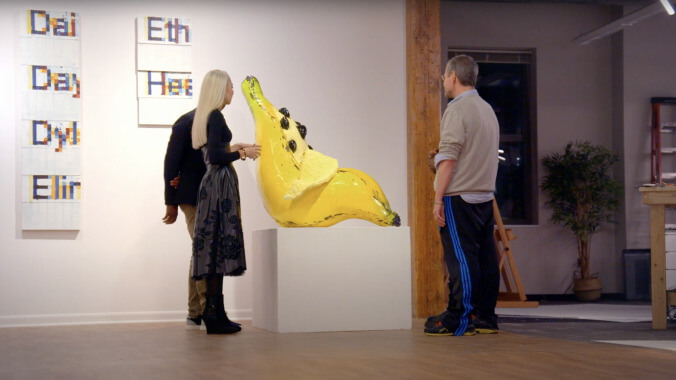MTV's The Exhibit is quietly subversive and clever
MTV and the Smithsonian have teamed up for a reality competition show that's better and smarter than it has any right to be

Over a decade ago, Bravo aired a cult hit reality show called Work Of Art: The Next Great Artist from Magical Elves Productions, the same people behind hit reality shows Project Runway and Top Chef. Now MTV and the Smithsonian Channel have introduced a spiritual successor called The Exhibit—and it’s quietly one of the most revolutionary reality shows in a long time.
On paper, the show is exactly the sort of thing we’ve seen many times before: Seven artists from various backgrounds and various walks of life come together at the Smithsonian’s Hirshhorn Musdeum And Sculpture Garden to make new art that fits a series of episodic challenges. A panel of judges, some of whom change with each episode, critique the art and pick a weekly champion. At the end, the winner of the whole series gets an exhibit in the museum and $100,000.
But there’s one crucial twist that subverts (and kind of breaks) the entire format: Nobody ever loses. Nobody gets sent home. There also aren’t prizes attached to the weekly challenges. The whole game, the only game, is making the best art you can each week and hoping that the judges liked your art enough to make you the winner. You could, in theory, not win a single challenge—called a “commission” here—and then still win the final prize if your collection as a whole is really strong.
Ah, but there’s a twist to the twist, and it’s so cleverly hidden that it seems like a secret trap that turns The Exhibit into a weird social experiment: There are no losers, but there are winners. Every week, the judges determine which art they liked the best, or which articulated the theme the best, and then everyone just sips champagne and congratulates them. There’s no mean judge who hates everything, at least not consistently, so this is where the drama mostly comes from (what little drama there is). In the first few episodes, there are talking-head interviews where some of the artists say, “well obviously so-and-so shouldn’t have won, it should’ve been me or such-and-such,” and the resentment—mild as it is—is palpable.
 Keep scrolling for more great stories.
Keep scrolling for more great stories.
